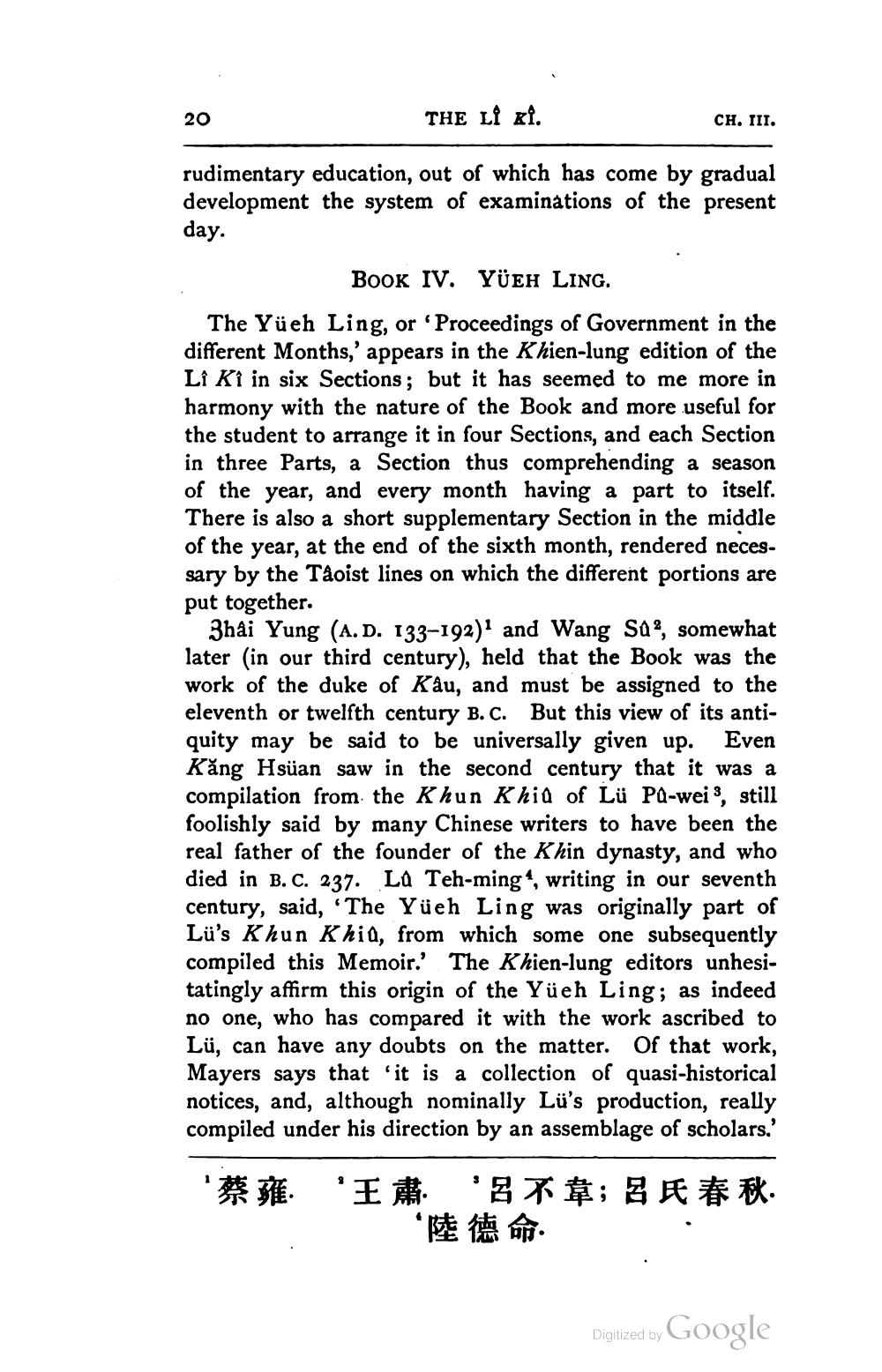________________
20
THE LÎ xi.
CH. IIT.
rudimentary education, out of which has come by gradual development the system of examinations of the present day.
Book IV. YüEH LING. The Yüeh Ling, or 'Proceedings of Government in the different Months,' appears in the Khien-lung edition of the Li Ki in six Sections, but it has seemed to me more in harmony with the nature of the Book and more useful for the student to arrange it in four Sections, and each Section in three Parts, a Section thus comprehending a season of the year, and every month having a part to itself. There is also a short supplementary Section in the middle of the year, at the end of the sixth month, rendered necessary by the Taoist lines on which the different portions are put together.
Zhai Yung (A.D. 133-192)' and Wang Sa?, somewhat later (in our third century), held that the Book was the work of the duke of Kâu, and must be assigned to the eleventh or twelfth century B.C. But this view of its antiquity may be said to be universally given up. Even Kăng Hsüan saw in the second century that it was a compilation from the Khun Khid of Lü PQ-wei, still foolishly said by many Chinese writers to have been the real father of the founder of the Khin dynasty, and who died in B.C. 237. La Teh-mingo, writing in our seventh century, said, 'The Yüeh Ling was originally part of Lü's Khun Khid, from which some one subsequently compiled this Memoir.' The Khien-lung editors unhesitatingly affirm this origin of the Yüeh Ling; as indeed no one, who has compared it with the work ascribed to Lü, can have any doubts on the matter. Of that work, Mayers says that it is a collection of quasi-historical notices, and, although nominally Lü's production, really compiled under his direction by an assemblage of scholars.'
'
. 'I
'978; SÆT
Digitized by Google




